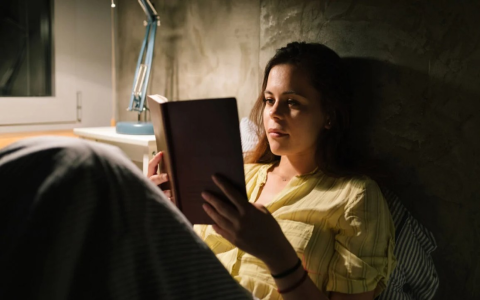Honestly, I’ve always been that guy staring at the ceiling at 3 AM, brain buzzing. Everyone talks about sleep music, but how does that actually work? Like, what’s the deal? Decided to ditch the armchair philosophy and actually try this out properly.
First up, I grabbed my stuff. My dusty Bluetooth speaker, my phone (with YouTube Music, though no ads version because ads wreck any chill mood!), and my regular notebook. Thought about fancy sleep trackers, but nah, keeping it simple. Just me, some tunes, and seeing if I feel less like a zombie the next day.
Night One: Total Disaster Zone
Okay, so jumped straight in. Found some “Deep Sleep Piano” thing someone recommended. Hit play, climbed into bed. Seemed nice enough… gentle notes and all that. But then?

- My brain started paying attention to the melody. “Ooh, what’s that next note?”
- Felt like waiting for something. Like, when is this supposed to knock me out?
- Checked my phone clock like four times. “Has it been an hour yet?” Spoiler: It hadn’t.
Ended up more wired than before. Huge fail. Felt kinda dumb. Coffee was my best friend the next morning.
Night Two: The Slow Down Trick
Read some quick tips online. Saw someone mention “beats per minute” – or BPM. The idea is slower music somehow syncs with your resting heartbeat? Sounds wild, but why not. Searched for tracks labeled “around 60 BPM” – roughly a beat per second.
Found this ambient thing with no clear tune, just slow, deep hums and whooshing sounds. Less like music, more like a spaceship engine idling gently. Much weirder than the piano.
Didn’t care about melody this time because there wasn’t one really. Focused on breathing slowly instead. Felt the slow pulse of the sounds sorta pulling me down into the mattress.
- Woke up once later for a sip of water. Noticed the sounds were still going. Didn’t pull me out of sleep.
- Felt… heavier? When the alarm went off. Less immediate panic to face the day.
- Noticed my coffee intake dropped slightly. Could it be?
Kept this up for a week. Some nights felt deeper than others. That weird ambient soundscape became my go-to. Accidentally played faster music one night – maybe 80 BPM? – and totally felt the difference. Brain just didn’t settle the same way.
The “Real Life” Test
Okay, okay, decent sleep at home. But what about when life throws junk at you? Last week sucked. Big work deadline, neighbor decided midnight was perfect DIY time, and I stress-ate junk food like it was my job.
Pre-junk food, feeling overwhelmed, I forced myself to lie down with the slow hums. Didn’t expect it to work. But somehow, focusing on those low, steady sounds pushed the panic thoughts aside just enough. Still slept like garbage thanks to the neighbor’s hammering and my stomach yelling about pizza, but without the music? It would have been way worse. Found myself reaching for it almost by reflex.
What Actually Worked (For Me)
- Forget Pretty Tunes: Melodies woke me up. Weird hums? Better. Way better.
- Slow and Steady Wins: That 60 BPM thing felt legit. Like dragging my brain down to rest speed.
- Consistency: Took a few nights. My brain needed time to learn “oh, this specific sound means sleep mode now.”
- Not a Magic Wand: Stress and cheese puffs still win sometimes. It’s a tool, not a cure-all.
My notebook has coffee stains and terrible handwriting tracking this whole thing. Feels messy and real. Bottom line? It’s not witchcraft. For my brain, drowning out the noise inside my head with slow, steady, boring sounds works.
Still weird to tell people I fall asleep to something that sounds like a fridge stuck in mud, but hey, it works! Need more coffee.

